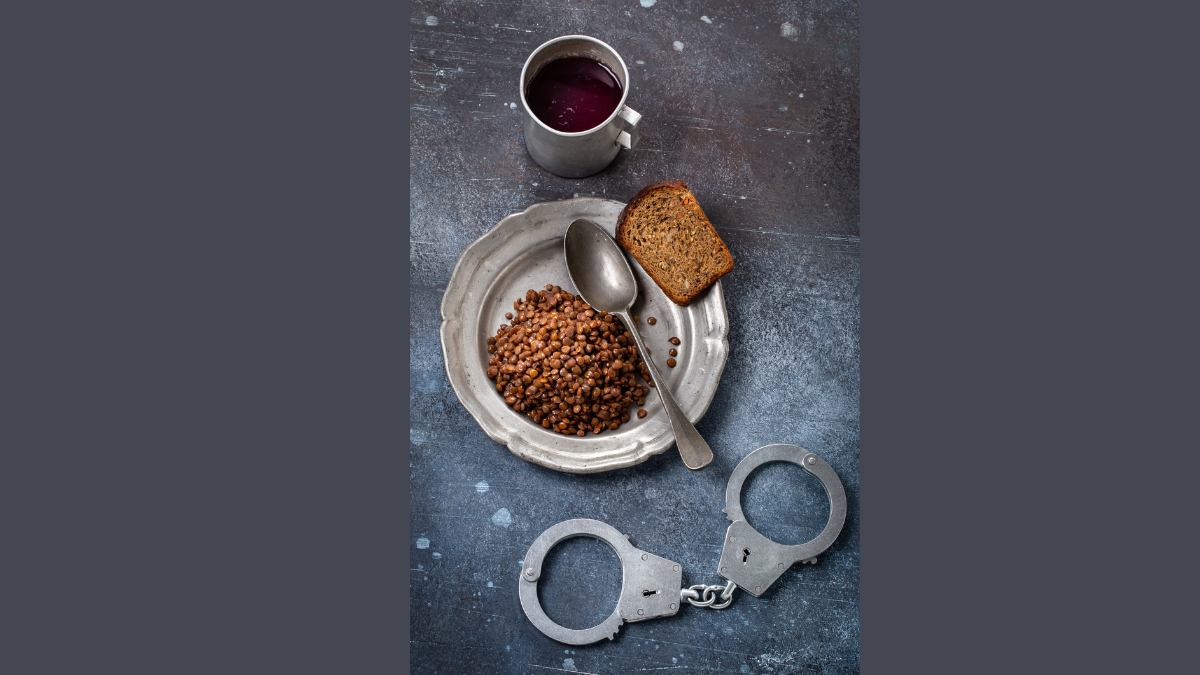Food in women's prisons is 'part of the pains of imprisonment': Researchers call for an increase in prison food budgets
Oreo cheesecake, pudding in a mug, and Kettle Chow Mein are just a few examples of food prepared by women in prison across England, according to a new cookbook based on research by the University of Surrey.

While food in prison contributes to understanding social relationships and cultural identities, it is often seen as 'part of the pains of imprisonment', according to the research team. This book showcases the ingenuity of incarcerated women when it comes to preparing and cooking their dishes, often in their cells and kettles, in an attempt to brighten and enrich their dietary provision.
Between 2021 and 2024, researchers interviewed 80 women, using food diaries, conducting observations, focus groups, and art workshops, as part of a project funded by the Economic and Social Research Council. The project identified a relationship between the quality of food and the impact this has on wellbeing. Many participants noted that their weight fluctuated, and mental health issues were exacerbated due to the quality of the food they consumed.
The research and its outcomes are the basis of a new illustrated book – Beyond Porridge – that showcases recipes and advice from women from four different prisons. Beyond Porridge explains how women in prison use limited ingredients to supplement their standard prison diet by cooking a wide variety of dishes that reflect their creativity, food knowledge and cultural and religious backgrounds. It tells of the comfort foods they miss most. In their own words and illustrations, supplemented by commentary from the research team, the book shows how ingenuity can spring from the most unlikely of circumstances. The book also features a foreword by celebrity chef Jon Watts. Readers can purchase the book at Waterside Press, Amazon or Waterstones.
The project suggests that women who experienced trauma before they went into prison, such as domestic violence, found that this impacted how and what they ate. For example, one woman did not like her food being touched by others due to being in an abusive relationship prior to imprisonment.
The project also looked into how food affects women's social identities. A common theme was women's use of food to embrace their cultural identities. However, others felt that their prison was quite tokenistic in its delivery of diversity. Food was only celebrated in periods like Black History Month and inconsistently across the year.
Women spoke about the inconsistencies around food in various prisons. Inconsistencies were based on the types of food available and opportunities to prepare and cook their own food. Many of our participants also spoke about the creative ways they prepared food, for example, cooking noodles in kettles. The moral of the story is that if you treat women in prison with respect and dignity by providing quality food, you will increase the chances of women leaving prison who are aspirational, hopeful for the future and have the confidence to achieve and better themselves.Dr Maria Adams
The next steps for this project will be to use the findings to campaign towards improving food quality across women's prisons in England and Wales.
Research around food in prisons has been valuable in broadening awareness of the powerful impact food can have on prisoners. The experiences and feelings that food can bring go far beyond simply a need to avoid hunger or to provide energy. The research showed there is an emotional effect of the types of food available, and there is a desire for wider, healthier, and more culturally diverse options. Hopefully, the research will inspire prisons to be more creative and inventive with what they can provide. At HMP Send, we are planning on increasing the amount of prison-grown produce from the horticulture department."Kirstie Hall, Business and Community Engagement Manager, HM Prison Send
The research team is working to form partnerships with organisations from the charity sector and would like to implement practical changes that will produce opportunities for women to work and improve cultural diversity. The team is looking to produce an information hub that connects practitioners, prison staff and academics to share food-related information.
Notes to editors
Media Contacts
External Communications and PR team
Phone: +44 (0)1483 684380 / 688914 / 684378
Email: mediarelations@surrey.ac.uk
Out of hours: +44 (0)7773 479911